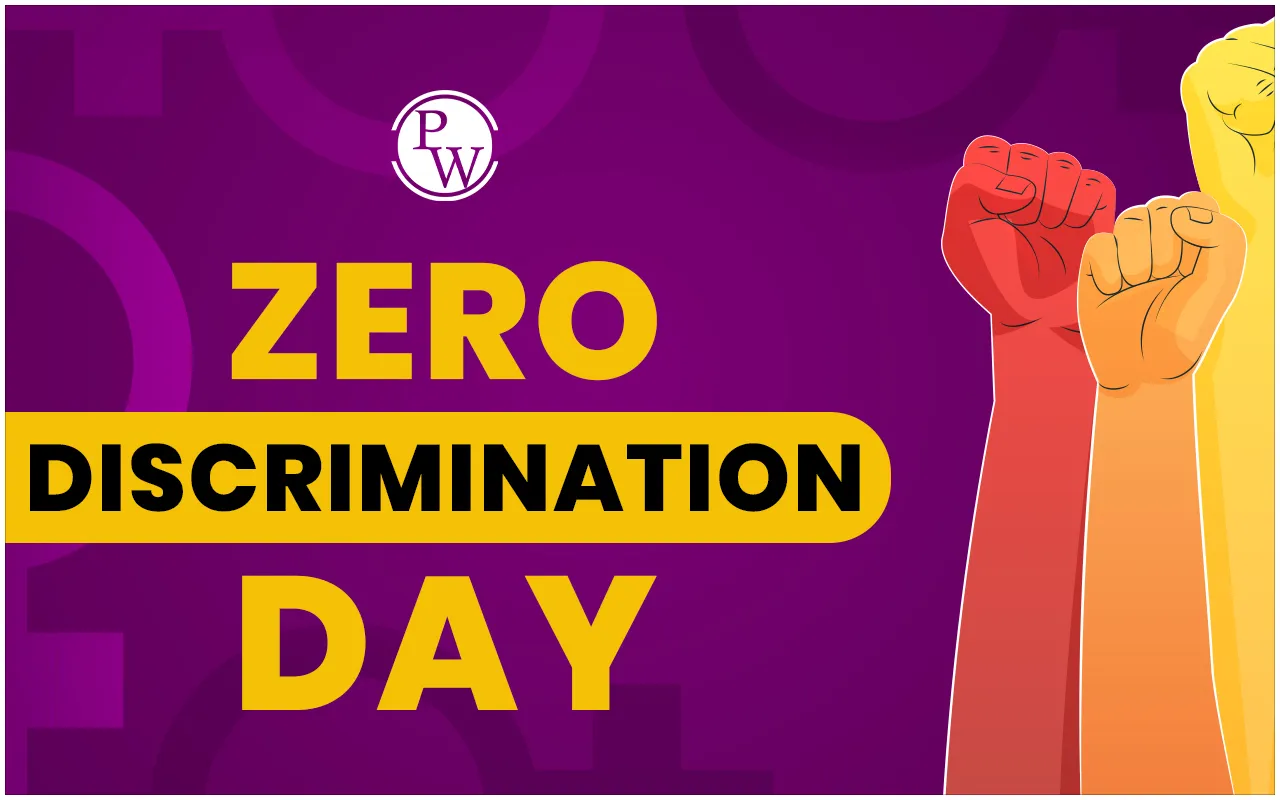
Zero Discrimination Day 2025 will be observed on March 1st, raising awareness about the importance of equality, dignity, and human rights. The day, initiated by UNAIDS (United Nations Programme on HIV/AIDS) in 2014, highlights the need to eliminate discrimination based on gender, race, age, health conditions, or socio-economic status. Read on to learn more about Zero Discrimination Day 2025.
Zero Discrimination Day is observed annually on March 1st to promote equality and challenge discrimination in all its forms. Its symbol is the butterfly, representing change, hope, and transformation. In 2025, this day will emphasize the right of every individual to live with dignity, irrespective of their background, gender, ethnicity, or health status.
|
Zero Discrimination Day 2025 Overview |
|
|
Date |
March 1st, 2025 |
|
Organizers |
United Nations and UNAIDS |
|
Theme |
We stand together |
|
Purpose |
To raise awareness about discrimination and its impact on health and well-being. |
|
Symbol |
The butterfly, representing transformation and change. |
|
Activities |
Events, marches, rallies, workshops, and cultural activities to promote inclusion and combat discrimination. |
|
Importance |
Highlights the need to end discriminatory laws and practices, ensuring access to healthcare and promoting social justice. |
|
2025 Focus |
Empower communities |
The Zero Discrimination Day Theme 2025 is “We Stand Together”, highlighting the role of communities in ensuring health equity and justice. According to UNAIDS, communities have been at the forefront of HIV response efforts, advocating for the rights of marginalized groups. However, they continue to face discrimination, funding shortages, criminalization, and political resistance.
The Zero Discrimination Day 2025 theme calls for:
Stronger support for community-led organizations in delivering healthcare services.
Legal recognition and sustainable funding for community-based initiatives.
Elimination of discriminatory laws and stigma against vulnerable populations.
Greater inclusion of communities in healthcare policymaking.
UNAIDS first celebrated Zero Discrimination Day on March 1, 2014, to address the stigma and inequalities faced by people living with HIV/AIDS. The initiative stemmed from the UNAIDS Zero Discrimination Campaign, which aimed to challenge unfair treatment in healthcare, employment, and society.
The creation of this observance was significant in dealing with the global HIV/AIDS epidemic, as many people living with HIV faced stigma, discrimination, and criminalization. Over the years, organizations like UNICEF, WHO, and Amnesty International have reinforced this cause by promoting inclusive policies and legal reforms worldwide.
Communities play a crucial role in eliminating discrimination and ensuring social justice. Zero Discrimination Day 2025 focuses on empowering them through:
Strengthening Community-Led Initiatives - Governments and international bodies must ensure they receive:
Uninterrupted funding for healthcare services.
Legal recognition to operate without barriers.
Involvement in decision-making for better policy implementation.
Fighting Stigma and Discrimination - Many individuals face social exclusion due to their HIV status, gender identity, or ethnic background. Zero Discrimination Day promotes:
Anti-stigma campaigns to raise awareness.
Educational programs to challenge stereotypes.
Legal reforms to protect the rights of marginalized groups.
Encouraging Inclusive Policies - Governments must work toward:
Removing discriminatory laws that target vulnerable groups.
Implementing workplace policies ensuring equal opportunities.
Enhancing healthcare accessibility for all individuals.
By empowering communities, we can build an inclusive, discrimination-free society.
Eliminating discrimination requires a collective effort from governments, communities, and individuals. To achieve Zero Discrimination they must:
Implement anti-discrimination laws in workplaces and institutions.
Remove criminalization laws that target marginalized groups.
Promote anti-bias training in schools and workplaces.
Organize campaigns on social media to spread awareness.
Provide financial aid and healthcare services to vulnerable populations.
Address mental health concerns of discriminated groups.
Take action against workplace harassment and bias.
By adopting these measures, societies can move closer to ending discrimination in all forms.
Zero Discrimination Day 2025 holds significant importance as it continues to serve as a reminder of the ongoing global fight against discrimination in all its forms. This day will help in:
Highlighting the ongoing fight against discrimination in all sectors.
Encouraging legal and social reforms to create an equal society.
Promoting inclusivity in healthcare, education, and employment.
Raising awareness about the impact of stigma on mental and physical health.
In conclusion, Zero Discrimination Day 2025 is a call to action to eliminate bias, promote equality, and empower communities. By supporting inclusive policies, legal protections, and awareness campaigns, we can create a society where everyone is treated with dignity and respect.
Explore PW UPSC Courses to deepen your understanding of social justice issues and complete your syllabus for the upcoming exam!
